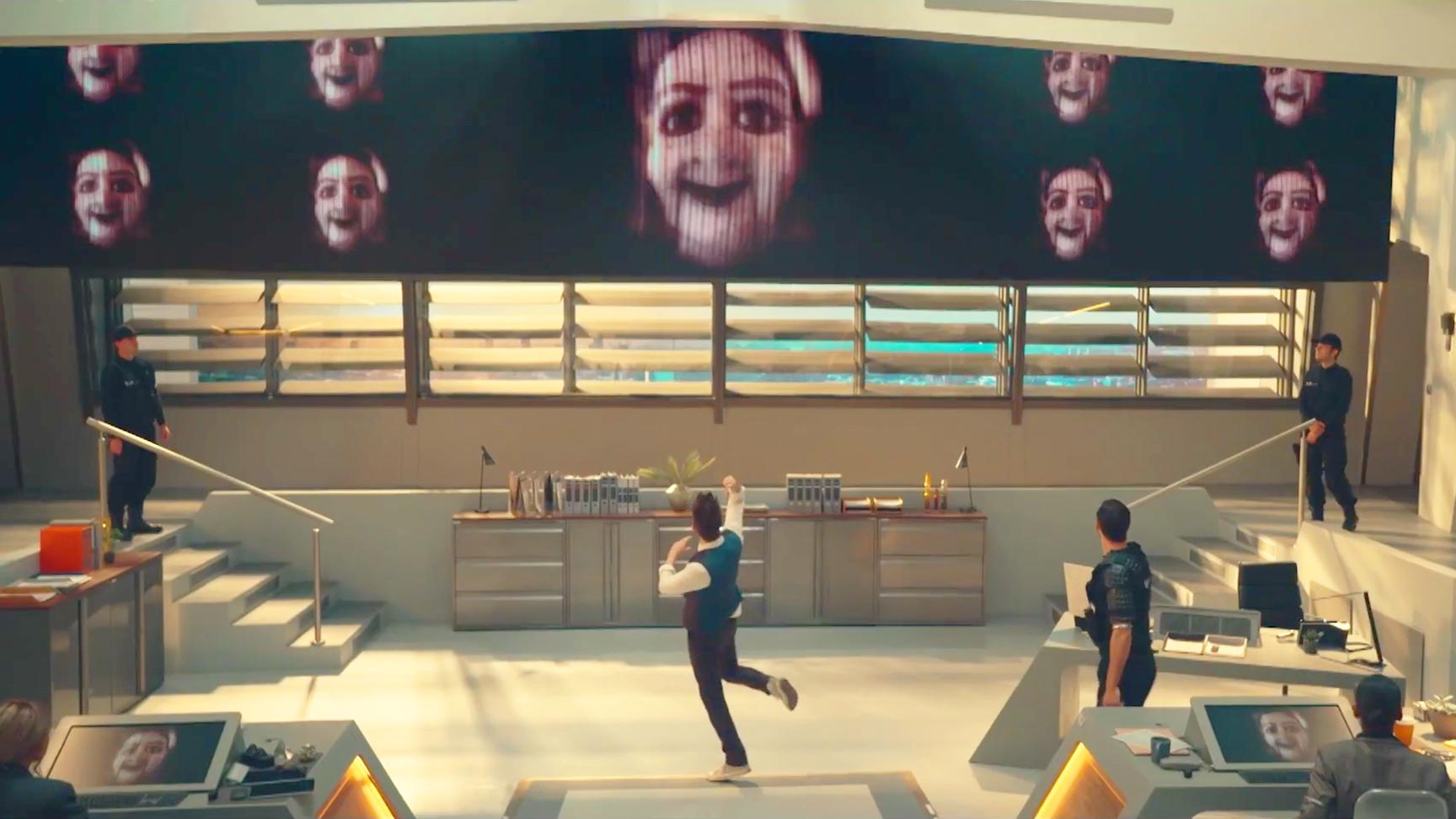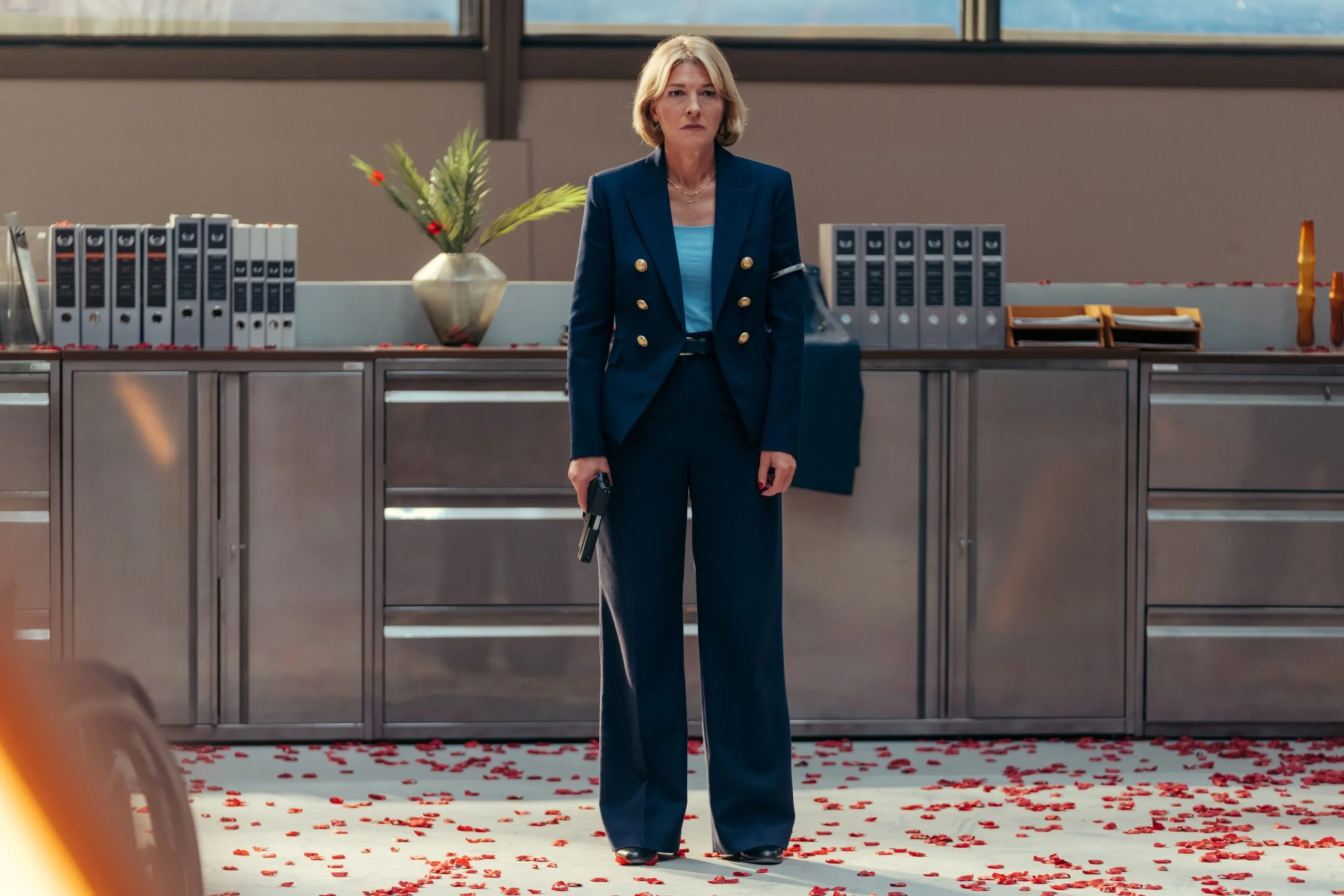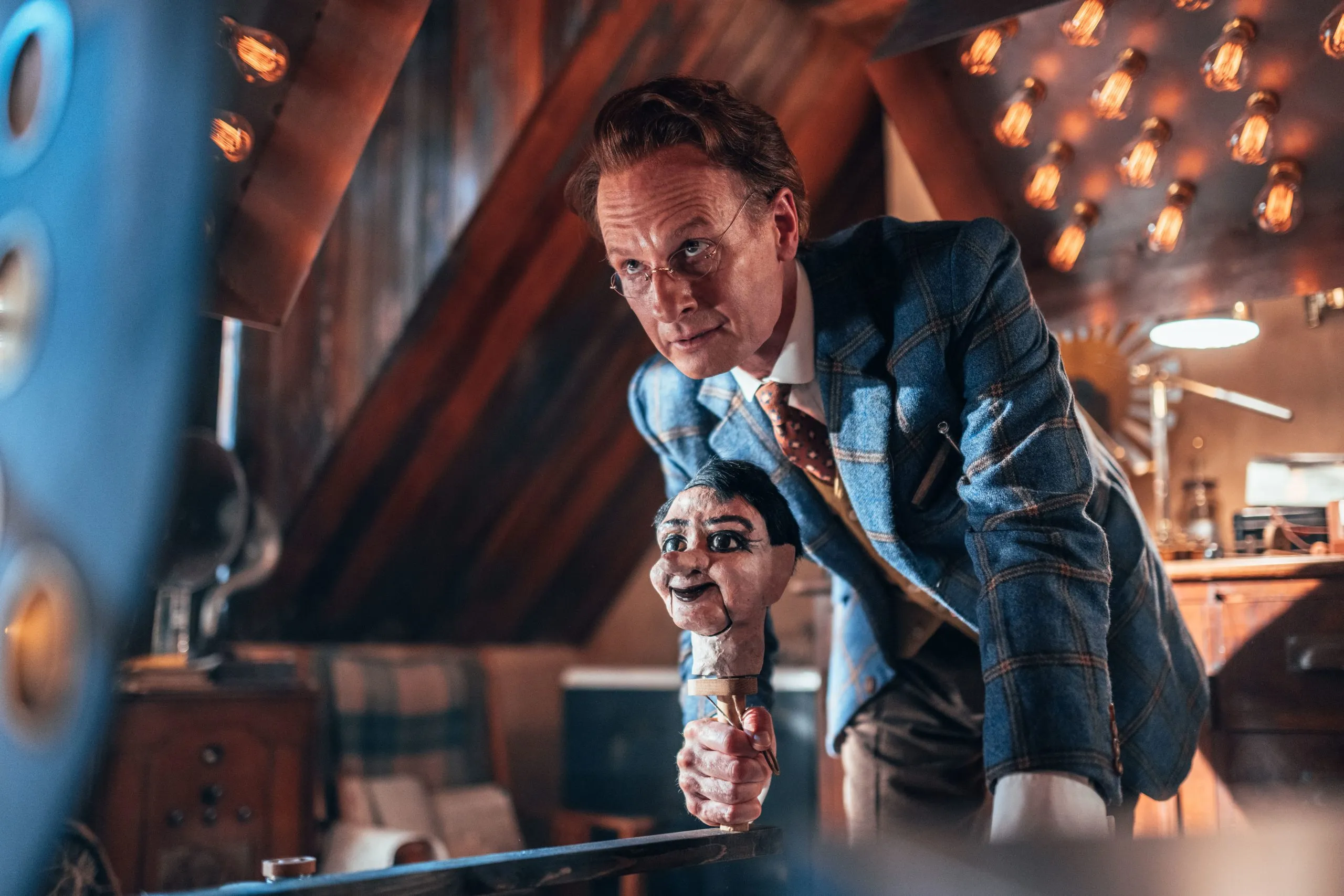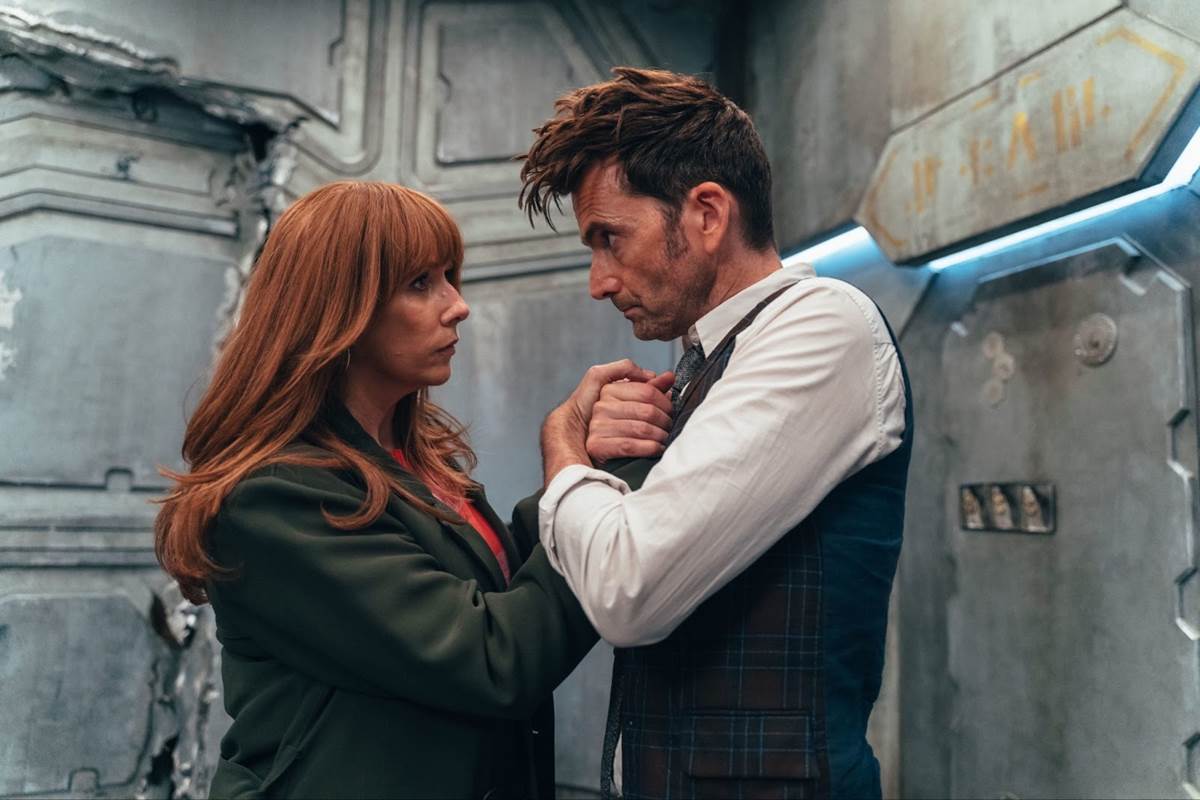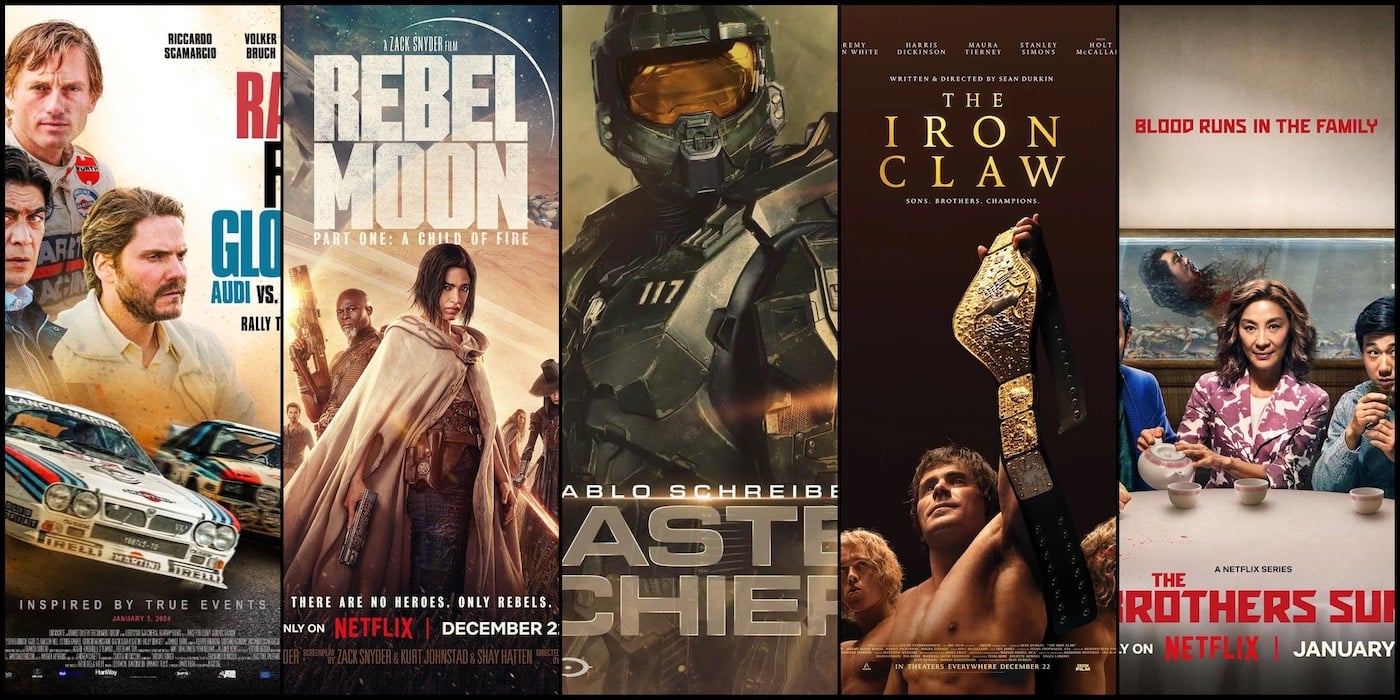‘Doctor Who’, “The Giggle”, and the Power of Free
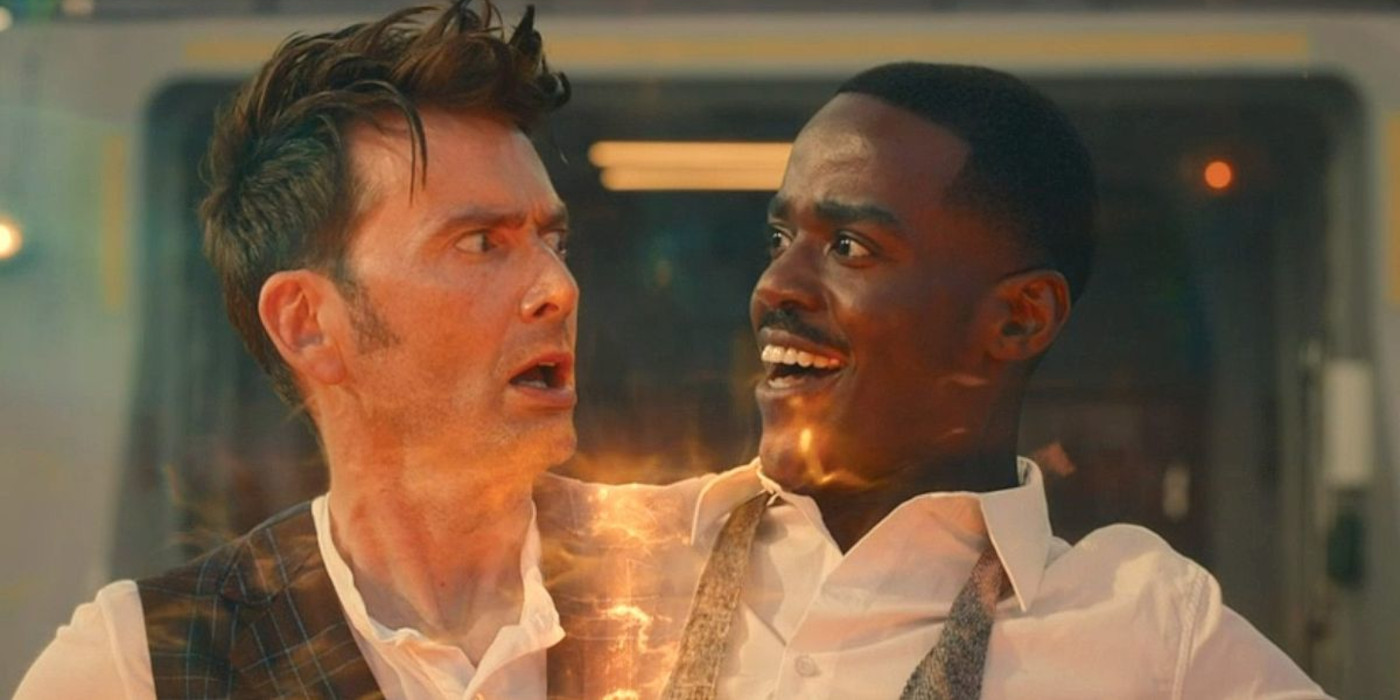
The third and final Doctor Who 60th anniversary special “The Giggle” is all about letting go, even when that feels impossible.
“The Giggle” on its base level is incredibly simple. The Doctor faces the Toymaker. The Toymaker forces the Doctor to not regenerate, but bigenerate into two Doctors. And then those two Doctors work together to defeat the Toymaker. There’s also the Toymaker’s realm, UNIT HQ, and a bit of global mind control. And, yes, we see the return of ’80s companion Melanie Bush, too. But these are pieces on a board. Toys in a game with both much larger and more personal stakes.
There are two, primary components to this finale—how television changes perception and a feeling of powerlessness. The human race cannot keep pace with its own technological innovations. No one, not even the Doctor, can outrun their own grief. And “The Giggle” is about how these two challenges are linked.
The War to Avoid All Wars
Our story begins in 1925 with John Logie Baird’s first television transmission of his ventriloquist dummy Stooky Bill. But what I find myself thinking more of is 1938. And not of television, but of radio — arguably the first piece of major media technology the human race doesn’t have time to wrap its collective head around.
The night before Halloween, Orson Welles transmits a radio play version of War of the Worlds that convinces some people that aliens are invading. And while the number of people who actually feel that fear is small, the news media picks it up and treats the event as though it’s a pandemic of panic.
Not only is it not a reflection of what’s really happening, it’s also a distraction from the fact that Nazi Germany just marched into the Sudetenland earlier that month. You can, if you choose, focus on a fake radio news broadcast. Certainly, Orson Welles finds himself, on television no less, being interviewed on the topic. The theater of this is intoxicating, and it’s a means of avoiding thinking of a real threat: Nazis. War of the Worlds, indeed.
In other words: perceptions are changed at a time when people feel powerless.
Kate Lethbridge-Stewart, Conspiracies, and Feeling Right
If the early 20th century shows humanity the early pitfalls of media as gamified fearmongering, then the 21st century sees us living in that pit — especially this version where there’s internet access literally everywhere.
Watching a man effectively pick a fight with a car because he pays his taxes really captures the grim, self-defeating comedy of the situation. But it’s Kate Lethbridge-Stewart who shows the deeper dangers. Kate is a scientist. She is cautious and considerate in all things. Kate is a good person.
And yet, the moment she allows the giggle in, she snaps. Any reasonable question gets turned into absolutes. Kate implies the Doctor is dangerous because they are an alien. She questions if there’s a ginger conspiracy. And just to finish out, she accuses Shirley Bingham of not needing her wheelchair.
Any rando on the street can be a conspiracy theorist, but it also can be anyone. It’s your best friend. It’s your parent. For the Doctor, it’s Kate Lethbridge-Stewart. Kate knows aliens, terrestrial or otherwise, are not inherently dangerous. She knows gingers aren’t in a secret ginger gang. And she absolutely knows that not all disabilities look the same.
But the truth is that everyone lives in a soup of misinformation. You don’t have to believe something for it to be in your head. And the more conflicting notions exist, the harder it is to know what’s true and what isn’t. What could possibly make someone feel more powerless than that?
Doctor Who Frozen In Time
The two Doctors defeat the Toymaster. But while Ncuti Gatwa’s Doctor sees the victory in that, Tennant’s wonders how many people died before the Toymaster’s spell was undone. To Tennant’s Doctor, everything is pass or fail. Unless every life is safe, it’s not enough.
The Doctor isn’t always like this, but they have been since 2005. We meet the Ninth Doctor and one of the first things we learn is that he is the last of the Timelords. According to that Doctor, that’s his fault. Every incarnation the Doctor has from 2005 to 2023 carries through that guilt. Everything that goes even the slightest bit wrong is retraumatizing. The Doctor has two hearts. All of time and all of space, but wherever they go, one of those hearts is always reliving, always relitigating.
In the previous Doctor Who special “Wild Blue Yonder” the Doctor yearns for a version of Donna Noble who knows all the Doctor’s pain without it needing to be named. But Donna can’t be that for the Doctor. No one can be that for anyone. A friend to help, to be there to listen while dealing with trauma? Sure. Donna’s perfect.
But there’s only one person who can understand the Doctor’s guilt, grief, and trauma — and that’s themself. How perfect that Gatwa’s Doctor tenderly holds Tennant’s and says “I’ve got you, it’s okay”. In “The Star Beast” Donna and Rose tell the Doctor they don’t know how to “let it go”. But in this moment the Doctor does let it go. That’s more than bigeneration, that’s therapy.
Doctor Who Says Get Off the Internet
“The Giggle” makes a point of connecting the screen of a television with the screen of a computer or a mobile phone. A screen everywhere you turn full of scare tactics and misinformation. It’s a place where every time you get it wrong, every time someone even thinks you got it wrong, lives forever. It’s an echo chamber of trauma and confusion. The Doctor has a confession dial, but this is our bespoke torture chamber—the giggle.
Bigeneration is the Doctor’s off ramp. No running away, just being with your chosen family and finding peace in the stillness. Donna says that every day can drive you mad, but it’s also living. It’s living in the one way the Doctor never has, without battlefields. In “End of Time” the Doctor’s reward is making sure everyone else is alright. In “The Giggle” the reward is that the Doctor gets to be right.
Ncuti’s Doctor is okay because Tennant’s Doctor stops to contemplate time wars and fluxes and lost friends. We fans of Doctor Who have no such luxury. Because we are not Timelords. We cannot bigenerate. Instead, we have to ask for help. We have to look within and tell ourselves we are okay.
“The Giggle” is a call for self-care. And, yes, part of self-care means not looking at a screen as much. That may seem like a small thing for Doctor Who to take on as it moves into a new era. But it’s not. A Doctor who acknowledges their losses without personal blame is exactly the Doctor we need right now.

